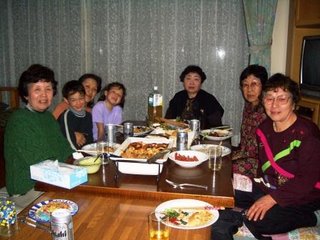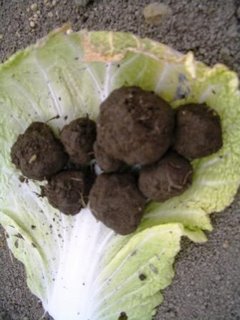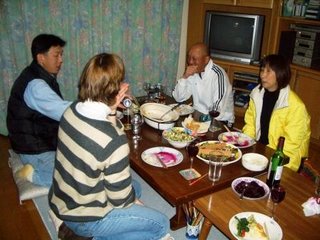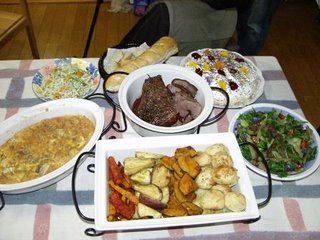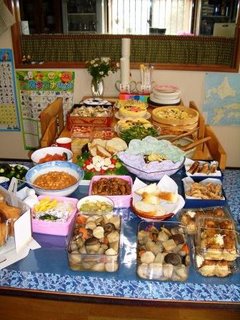 One thing that we are determined to have on our "farm" this year is bees. My mother has bees and it is always great to go home and eat honey every day without worrying about what kind of preservatives and other strange things have been added to it (I don't trust Japanese honey very much).
One thing that we are determined to have on our "farm" this year is bees. My mother has bees and it is always great to go home and eat honey every day without worrying about what kind of preservatives and other strange things have been added to it (I don't trust Japanese honey very much).I am so determined to have bees this year that I got my mother to bring me a bee suit for my husband for Christmas last year (he is a little too tall to be able to wear a Japanese one). It seems to have done the trick and he is now going to different places studying about bees and getting ready to bring our own bees home.
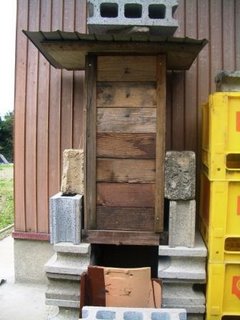 The biggest decision is what kind of bees to get. There are the standard ones of course, but then there are also a type of Japanese honey bee which produce very good (very expensive...) honey. The good thing about these kind of bees is that they have an amazing way of dealing with the killer hornets which appear in Japan. According to one
The biggest decision is what kind of bees to get. There are the standard ones of course, but then there are also a type of Japanese honey bee which produce very good (very expensive...) honey. The good thing about these kind of bees is that they have an amazing way of dealing with the killer hornets which appear in Japan. According to one  homepage
homepage Just one of these hornets can kill 40 European honeybees a minute; a handful of the creatures can slaughter 30,000 European honeybees within hours, leaving a trail of severed insect heads and limbs.The Japanese honeybees deal with this by teaming up against the hornets, forming a tight ball of bees around them and increasing the temperature inside the ball to 42 degrees - effectively frying the hornet.
The downside of the Japanese honeybees is that they are more difficult to please and often leave the hive for better pastures and don't produce a very large quantity of honey. I think we are swaying towards normal honeybees at this stage - possibly moving up to Japanese ones as we get a little more experienced. I just want honey!
Once the honey is sorted out it will be on to the chickens......
